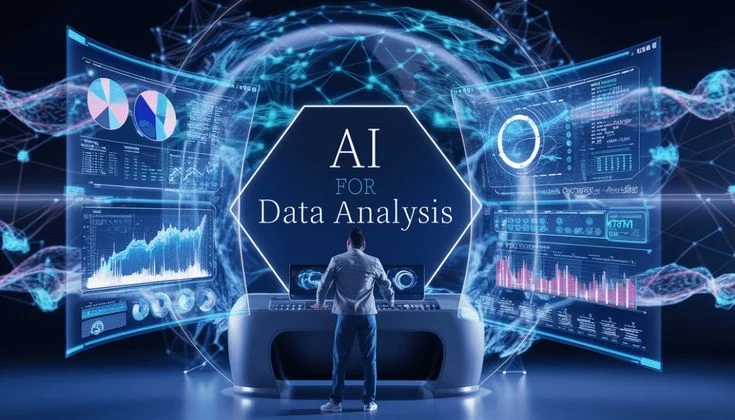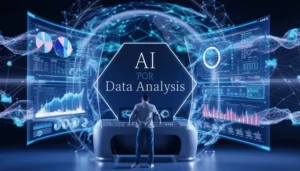AI aggregates have become a powerful tool in today’s digital world. By combining artificial intelligence with data aggregation, businesses and individuals can make smarter and faster decisions. Unlike traditional methods of collecting and analyzing information, AI aggregates allow automation, real-time insights, and greater accuracy.
Because of these advantages, industries ranging from finance to healthcare are adopting AI to process information and predict outcomes. In this article, we will explore what AI aggregates are, how they work, their applications, benefits, and the challenges they present.
Understanding AI Aggregates
What Are AI Aggregates?
These systems collect, analyze, and summarize large amounts of data using artificial intelligence. Instead of manually compiling information from multiple sources, they streamline the process by applying algorithms that identify patterns, trends, and meaningful insights.
For example, in financial markets, such systems can monitor global news, stock data, and economic reports, and then deliver a simplified summary. As a result, decision-makers gain quick access to the most important information without being overwhelmed.
Why AI Aggregates Matter Today

We live in an age of information overload. Billions of data points are generated daily through websites, apps, social media, and business platforms. Traditional systems cannot keep up with this volume. However, advanced AI solutions solve the problem by filtering out noise and focusing only on relevant data.
This capability not only saves time but also improves decision-making. Therefore, companies are investing heavily in AI technologies to stay competitive and efficient.
How AI Aggregates Work
Machine Learning and Data Collection
Machine learning is used to gather and interpret data. Algorithms scan multiple databases, APIs, and online platforms to collect information. Then, the system organizes the data into categories and ranks it according to relevance.
Natural Language Processing (NLP)
Another key component of AI is natural language processing (NLP). NLP enables AI to understand human language, extract meaning from text, and summarize information in simple terms. This makes it especially useful for industries that deal with reports, documents, or customer feedback.
Real-Time Analysis
One of the biggest strengths of AI aggregates is real-time processing. Unlike traditional data systems that update daily or weekly, AI aggregates can analyze information instantly. Consequently, businesses can act quickly when conditions change.
Applications of AI Aggregates
Financial Services
AI is widely used in finance. Banks, investment firms, and traders rely on AI to analyze stock markets, predict risks, and suggest investment opportunities. For instance, AI can summarize financial statements and news headlines, helping analysts respond faster.
Healthcare Industry

In healthcare, AI is applied to patient data, research papers, and clinical trials. Doctors and researchers use these systems to make accurate diagnoses, track disease outbreaks, and improve treatment options. This speeds up medical decision-making while reducing errors.
E-Commerce and Marketing
E-commerce platforms benefit from AI aggregates by tracking customer preferences, product reviews, and competitor pricing. As a result, companies can adjust strategies, improve customer experiences, and increase sales.
Education and Research
Universities and research organizations use AI to sort through academic papers, journals, and online resources. Students and researchers save time while gaining more accurate and comprehensive knowledge.
Benefits of AI
Speed and Efficiency
AI can process in seconds what would take humans days or even weeks. Therefore, businesses gain faster results and reduce costs.
Improved Accuracy
By reducing human error and applying predictive models, AI improve accuracy. This makes insights more reliable and decisions more effective.
Scalability
Whether analyzing thousands of documents or millions of data points, AI scale easily. Companies can handle large projects without the need for massive teams.
Better Decision-Making
Perhaps the most important benefit is decision-making. With AI aggregates, organizations base strategies on real-time, accurate insights rather than outdated or incomplete data.
Challenges and Concerns
Data Privacy Issues
AI relies on massive amounts of information, which raises privacy concerns. Companies must ensure compliance with data protection laws and ethical standards.
Overreliance on Technology

While AI is powerful, relying too much on it may reduce human judgment. Therefore, balancing AI automation with human oversight is essential.
Bias in AI Systems
If AI models are trained on biased data, the outcomes may also be biased. To solve this, developers must carefully monitor and update AI models.
The Future of AI Aggregates
The role of artificial intelligence in data aggregation is expected to grow significantly. In the future, these tools will become even more personalized, providing tailored insights for individuals as well as organizations.
Additionally, industries such as transportation, law, and public policy will adopt advanced AI systems to improve services and outcomes. For instance, governments may use intelligent platforms to track economic conditions or environmental changes more effectively.
To see how AI is already reshaping other fields, you can check this guide on AI tools for data analysis, which shows how businesses turn raw data into meaningful strategies.
FAQs About AI Aggregates
1. What is the purpose of AI aggregates?
The purpose is to collect and summarize large sets of data, helping users understand complex information quickly and accurately.
2. How do AI aggregates use artificial intelligence?
They rely on machine learning, natural language processing, and predictive algorithms to analyze data and generate insights.
3. Which industries benefit most from AI aggregates?
Finance, healthcare, e-commerce, education, and research are currently the biggest users of AI aggregates.
4. Are AI aggregates safe to use?
Yes, but they must follow strict data privacy rules and ethical guidelines to ensure safety and fairness.
5. Can small businesses use AI aggregates?
Absolutely. Many tools are affordable and scalable, making them useful for startups and small companies as well as large enterprises.
AI Aggregates: Conclusion
Artificial intelligence is transforming how we handle information in the digital age. It speeds up processes, improves accuracy, and helps industries make better decisions.
Although challenges like privacy, bias, and overreliance remain, the benefits are far greater. By embracing these systems as supportive tools rather than replacements for human intelligence, we can unlock smarter and more efficient solutions.
In the coming years, intelligent data solutions will continue to expand across industries and influence every aspect of decision-making. For businesses, researchers, and everyday users, adopting these technologies will be a key factor in staying competitive and innovative.











